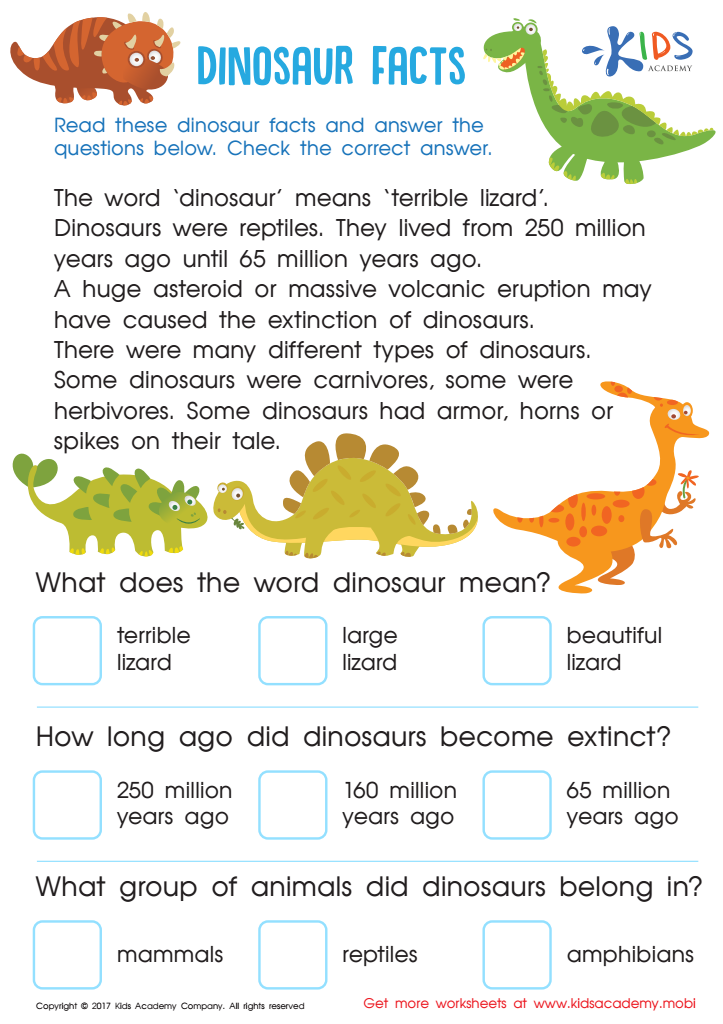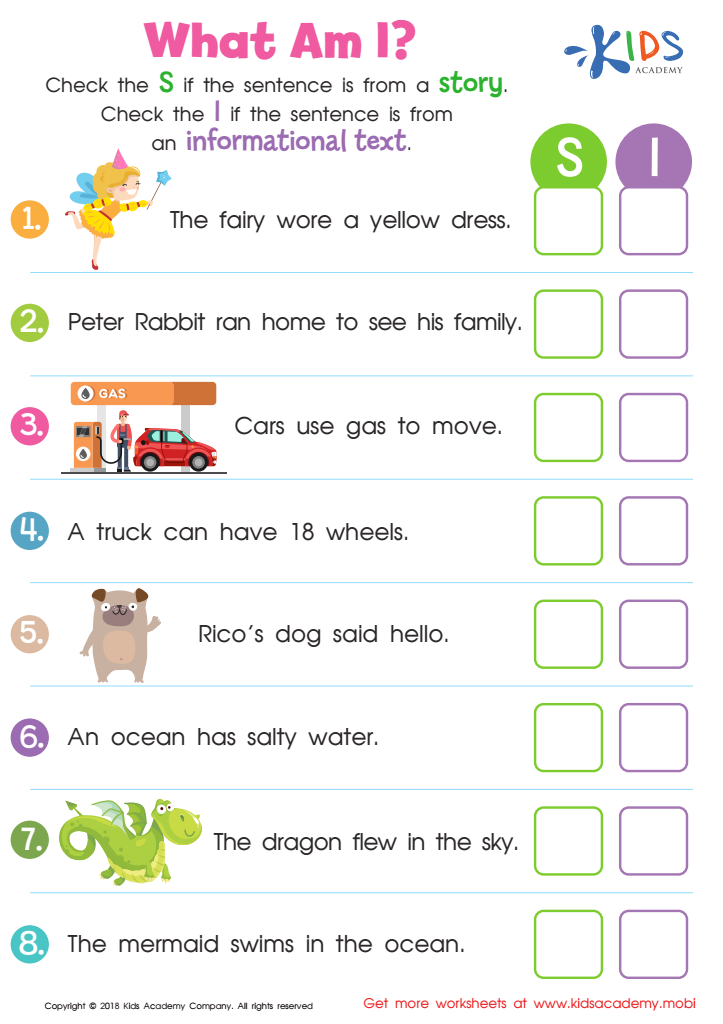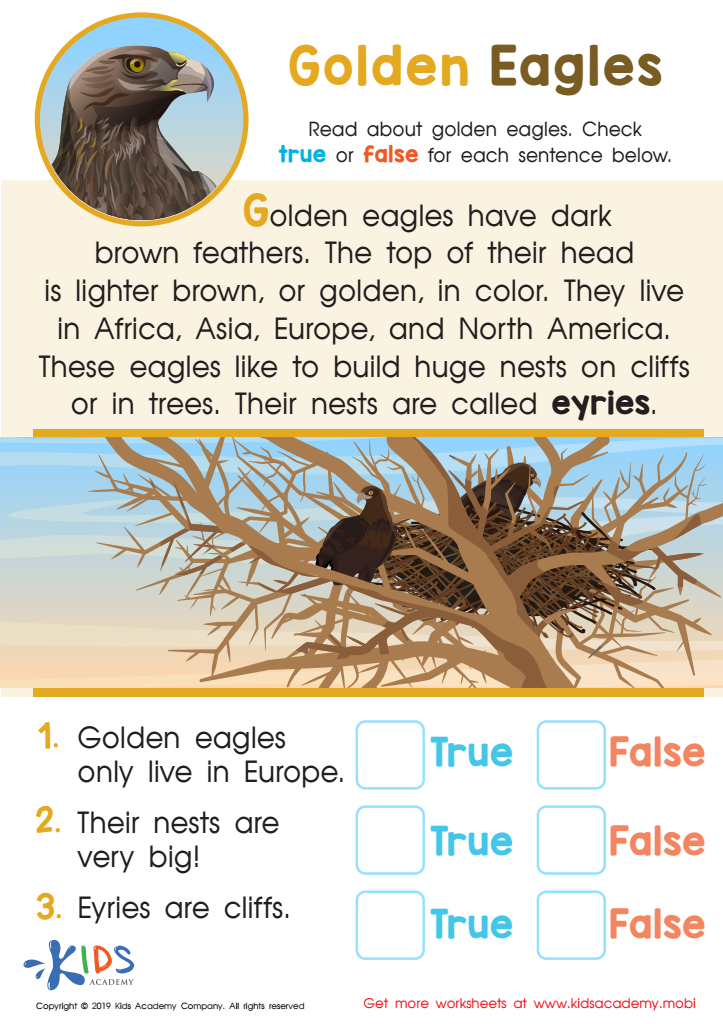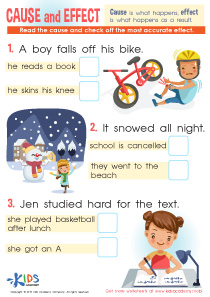Vocabulary Building Normal Reading Non-Fiction Worksheets for Ages 5-8
3 filtered results
-
From - To
Discover our engaging Vocabulary Building Normal Reading Non-Fiction Worksheets designed specifically for children ages 5-8! These worksheets provide a fun and interactive way to enhance vocabulary skills through captivating non-fiction texts. With age-appropriate content, students will explore various topics while learning new words in context. Our resources are tailored to support early literacy development, encouraging critical thinking and comprehension. Perfect for homeschooling or classroom use, these worksheets help children become confident readers and communicators. Each activity is designed to be enjoyable and educational, ensuring kids are excited to expand their vocabulary. Start enriching your child’s learning journey today!


Dinosaur Facts Worksheet


What Am I? Worksheet


Golden Eagles Worksheet
Vocabulary building is crucial for children aged 5-8, especially through reading non-fiction texts. During these formative years, children not only enhance their language skills but also develop critical thinking and comprehension abilities that are foundational for their educational journey. Non-fiction texts expose young readers to a rich variety of words related to real-world topics, fostering curiosity and engaging their interests.
As parents and teachers, caring about this aspect of reading means supporting a child's overall cognitive development. Expanding vocabulary through non-fiction helps children learn new concepts and terms, encouraging them to articulate their thoughts and ideas more effectively. It also aids in comprehension, as understanding complex texts relies heavily on a robust vocabulary.
Furthermore, reading non-fiction fosters skills such as research, critical analysis, and fact-checking, which are valuable in today’s information-heavy world. Encouraging children to ask questions and explore topics in-depth develops not just their vocabulary, but also independent learning skills. By prioritizing vocabulary building through non-fiction literature, parents and teachers help children unlock their potential, paving the way for academic success and a lifelong love of learning. In essence, investing in vocabulary development translates to empowering the next generation with the tools they need for the future.

 Assign to My Students
Assign to My Students



















